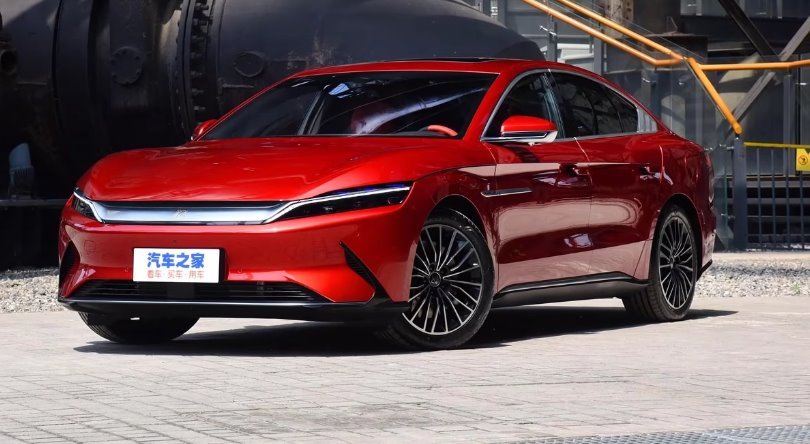BYD 'seriously thinking' about building EVs in Europe

Chinese technology company and vehicle manufacturer BYD is considering localised production of its electric cars to better serve the European market, having confirmed its Han saloon, Tang SUV and Atto 3 crossover for sale in the region within the next four months.
The cars are currently built in BYD’s home city of Shenzhen, China’s fourth most populous city, from where they will initially be exported to the global markets it is targeting as part of a massive global expansion plan: Scandinavia, Germany, Benelux, the UK and Israel.
But speaking exclusively to Autocar as the brand unwrapped its roll-out plans, Brian Yang, assistant general manager of BYD Europe, said the prospect of manufacturing cars locally was “interesting”.
“We are seriously thinking about some localisation plans,” he confirmed.
Asked where BYD could establish a production facility in Europe, Yang said: “We don’t have a solid plan. We’ve just started to learn, to really understand the beliefs of our customers, and if everything goes well and we build up all the foundations and structure here, that could lead to some localisation.”
He added: “It will be done step by step."
BYD hopes to capture a significant market share in Europe from Tesla and is arriving with a trio of models conceived carefully to go up against the American brand’s core models. (The Tesla Model 3-rivalling Seal is expected to come to Europe following its imminent Chinese market launch.) But Tesla has an advantage in the region - not just because it has been selling EVs in Europe for over a decade, but also because it is now producing cars at scale in a new factory near Berlin.
Although its commissioning was heavily delayed, the €5 billion (£4.2bn) Berlin plant has quickly become integral to Tesla’s global output and is estimated to have an annual capacity of 500,000 units. That’s in addition to the roughly 500,000-unit capacity of its Fremont, California factory, the 750,000 cars produced at its Shanghai site each year and the estimated 520,000 cars it will build annually in Texas.
BYD sold 641,350 ‘new energy vehicles’ (NEVs) in the first half of 2022 – a figure that includes a limited number of plug-in hybrids and hydrogen vehicles – compared with Tesla’s 564,000 units and it plans to increase output exponentially over the coming months to sell two million NEVs by the end of the year.
But despite healthy output from its five existing Chinese factories, BYD stands to gain heavily from opening a European factory, both in slashing lead times for local customers and cutting shipping costs. What remains to be seen is whether BYD would build cars in Europe and ship its own lithium iron phosphate batteries in from China or build a facility that could produce both for European markets.
There are opportunities to be explored in terms of platform sharing, too. BYD is already working with Toyota to develop affordable EVs for the Chinese market and Yang said the firm is “quite open” to the prospect of offering its new e-Platform 3.0 architecture for use by other manufacturers.
“We are quite open to the whole industry. We are not competitors. We can work together to really grow the whole EV market. This is our philosophy,” Yang said.
Yang stopped short of naming any potential brands that could work with BYD, but several EVs due on sale in Europe in 2023 and 2024 – including the Smart #1, next-generation Mini EV and Volvo ‘XC20’ compact SUV – use platforms developed by Chinese companies.
European production could facilitate a similar arrangement between BYD and a European marque - which could take advantage of vastly reduced development and manufacturing costs, and the added benefit that the vehicles would not need importing.
BYD is not the first Chinese brand to suggest it could build cars in Europe. Last year, William Li, chairman of rival EV brand Nio, said: "I believe if we have a lot of sales in the European market, we can also explore the other possibilities to work with other supply chain partners.
"I understand that in Europe, there is manufacturing capacity. We can also explore the possibility to work together with other OEMs and to discuss joint manufacturing with them."
However, the firm has made no indication since that it is progressing with plans to build cars in Europe.
Related News
